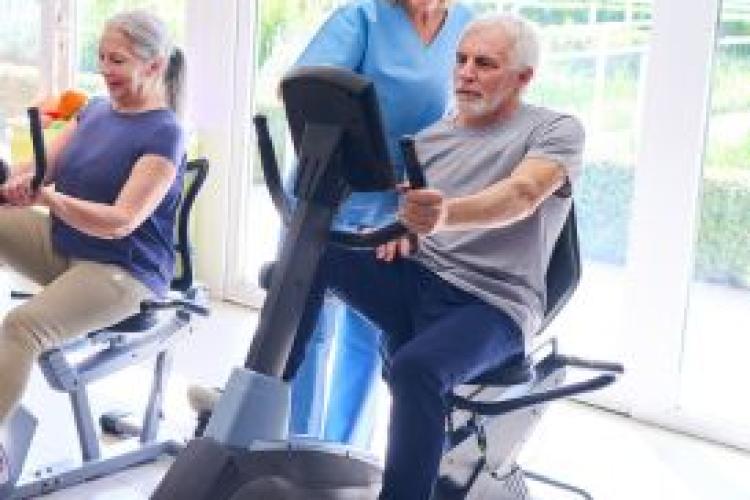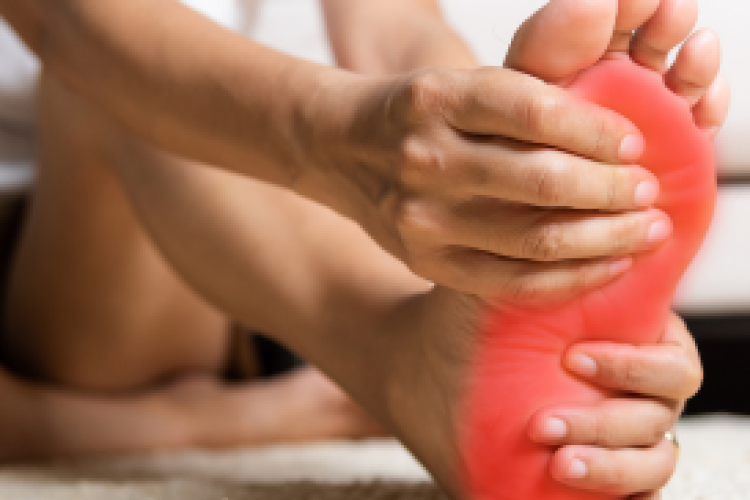As you enjoy the warm summer weather, take some simple steps to protect yourself from heat-related illness, sunburn and other common health issues of the season. Staying well-hydrated is key to avoiding potentially dangerous problems that come from becoming overheated, says Jeffrey Rabrich, DO, Medical Director of Emergency Medicine at Montefiore Nyack Hospital. “It’s important to stop heat-related illness before it progresses to heat stroke, which can be life-threatening,” he says.
Heat-related illness is most dangerous for very young children and older adults. Even young and healthy people can be affected if they participate in strenuous physical activity in the heat. “With heat-related illness, the thing to watch out for is the heat index, which measures the combination of heat and humidity,” Dr. Rabrich says. “The higher the heat index, the hotter the weather feels, since sweat doesn’t quickly evaporate and cool the skin when it’s humid.”
Heat-related illness can start with heat exhaustion, which can cause muscle cramps, feeling lightheaded, nauseous, headaches, and a general sense of fatigue. “If you feel any of these signs, go inside to an air-conditioned environment if you can, or at least get out of the sun into the shade,” Dr. Rabrich says.
Drink Plenty of Water
Drinking plenty of fluids will help you stay hydrated in the heat, and ward off heat-related illness. Water is the best beverage for hot weather—it’s not necessary to consume sports drinks, he says. When it’s hot outside, don’t wait until you’re thirsty to drink, Dr. Rabrich advises. Avoid alcoholic drinks in the heat – they can cause you to lose more fluid, and can impair your judgment about how hot or thirsty you are.
The best way to monitor if you’re hydrated enough is to monitor the color of your urine. “The lighter it is, the more hydrated you are,” Dr. Rabrich says. “If your urine is dark yellow, it means you need to be drinking more water. It should be almost clear.”
Other ways to prevent heat-related illness include wearing loose, light-colored, lightweight clothing and a hat; and avoiding the outdoors during the hottest part of the day, from 11 a.m. to 3 p.m.
Young children have a low tolerance for spending time in the heat, Dr. Rabrich notes. “They may not be able to tell you they’re thirsty and need to drink, so make sure they are getting plenty of water and are wearing light-colored, loose-fitting clothing, and don’t let them stay in the sun for long periods.” To avoid burns, keep kids away from metal playground equipment that’s been baking in the sun, he adds.
The most severe form of heat-related illness is heat stroke, when body temperature becomes dangerously high. A person’s skin may become very hot and dry. This is a medical emergency, Dr. Rabrich says. A person must be cooled immediately or they can suffer brain or organ damage. If you are caring for someone with a heat-related illness, seek immediate medical attention if symptoms don’t improve or if the person still has a temperature of 102 after 30 minutes of treatment; the person goes into shock, faints or has seizures; or stops breathing.
Avoid Sunburn
In addition to causing heat-related illness, spending too much time in the sun can lead to a sunburn. This can damage the skin and increase the risk of skin cancer. To protect your skin from the sun, stay in the shade as much as possible, especially during midday hours. Wear a hat with a wide brim to shade your face, head, ears and neck, and wraparound sunglasses.
The American Academy of Dermatology recommends choosing a sunscreen that is labeled “broad spectrum,” meaning that it can protect your skin from both types of harmful ultraviolet rays – UVA and UVB. Select a sunscreen with an SPF rating of 30 or higher. Water-resistant sunscreen will stay on wet or sweaty skin longer—but you still need to reapply at least every two hours, and each time you get out of the water or perspire heavily.
Other Common Summer Health Issues
Lyme Disease. Tick-borne illnesses including Lyme disease are on the rise. When hiking, stay on the trails, Dr. Rabrich says. “Be covered as much as possible, with long pants, and use tick repellent,” he says. “When you’re done with your outdoor activity, check yourself for ticks, or have someone else do it.” Because a tick must be embedded in the skin for at least 24 hours to transmit a tick-borne illness, if you remove it before then, you’re not at risk, he says. Also check your pets who have been outside.
Food Poisoning. Food left outside can go bad quickly, especially if it contains mayonnaise, such as potato or macaroni salad. Warmer temperatures cause foodborne bacteria to grow. Don’t eat food that’s been left out for several hours, Dr. Rabrich cautions.
Sprains and Strains. People who have been inactive during the cooler weather may overdo it once they start summer exercise, such as basketball or tennis. “My advice is if you’ve been inactive, increase your activity gradually,” Dr. Rabrich says. “Your muscles and joints will thank you.”



 Upcoming Events
Upcoming Events



